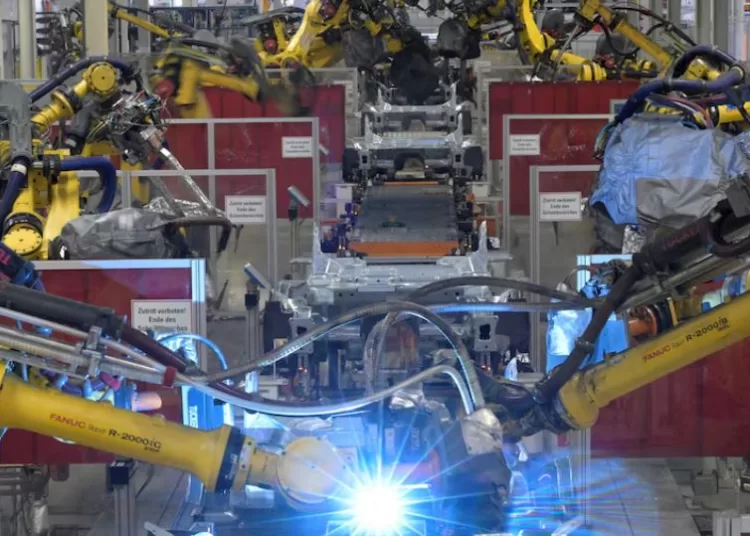Donald Trump’s trade advisers were finalising plans on Wednesday for the reciprocal tariffs the US president has vowed to impose on every country that charges duties on US imports, ratcheting up fears of a widening global trade war and threatening to add to already-sticky US inflation.
Separately, trade ministers of the 27-country European Union were due to meet by video conference to determine their response after European Commission President Ursula von der Leyen said tariff moves against the bloc “will not go unanswered”.
Germany’s economy ministry said ahead of the 1500 GMT meeting that the EU should focus on negotiating to avert a transatlantic trade war, while being ready with countermeasures.
Trump stunned markets with his decision on Monday to impose tariffs on all steel and aluminum imports beginning on March 12. The plans drew condemnation from Mexico, Canada and the European Union, while Japan and Australia said they were seeking exemptions from the duties.
The news sent industries reliant on steel and aluminum imports scrambling to offset an expected jump in costs.
Last week, Trump imposed an additional 10% tariff on Chinese goods, effective February 4, with Chinese countermeasures taking effect this week.
He delayed a 25% tariff on goods from Mexico and Canada for a month until March 4 to allow negotiations over steps to secure U.S. borders and halt the flow of the drug fentanyl.
Some U.S. workers welcomed Monday’s metal tariffs, but many manufacturing-heavy firms expressed deep concern over the next steps, warning the tariff hike would reverberate across supply chains, affecting all businesses that rely on the materials.
Executives from companies including supermarket chain Ahold Delhaize and Siemens Energy warned tariffs would lead to higher prices as they seek to pass on the extra costs of imports.
Europe’s steelmakers are also worried that U.S. tariffs will lead to a flood of cheap steel coming into Europe. French steelmaker Aperam urged Brussels to intervene to curb imports if that happened, while Austria’s specialty steelmaker voestalpine called on the EU to take immediate countermeasures.
Australia’s industry minister, meanwhile, said the nation’s plan to boost “green” aluminum exports would not be derailed by the threat of U.S. tariffs.
“The world has a high demand for our aluminum; we need it as part of the transition to net zero,” Ed Husic told reporters at the National Press Club in Canberra. “The question is for our American friends do you really want to pay more for that product that you’ve got a big demand for?”
Economists broadly see tariffs as presenting more upside risk to inflation than not, and ahead of the announcement from the White House the scene around price pressures for American households has taken a turn for the worse.





